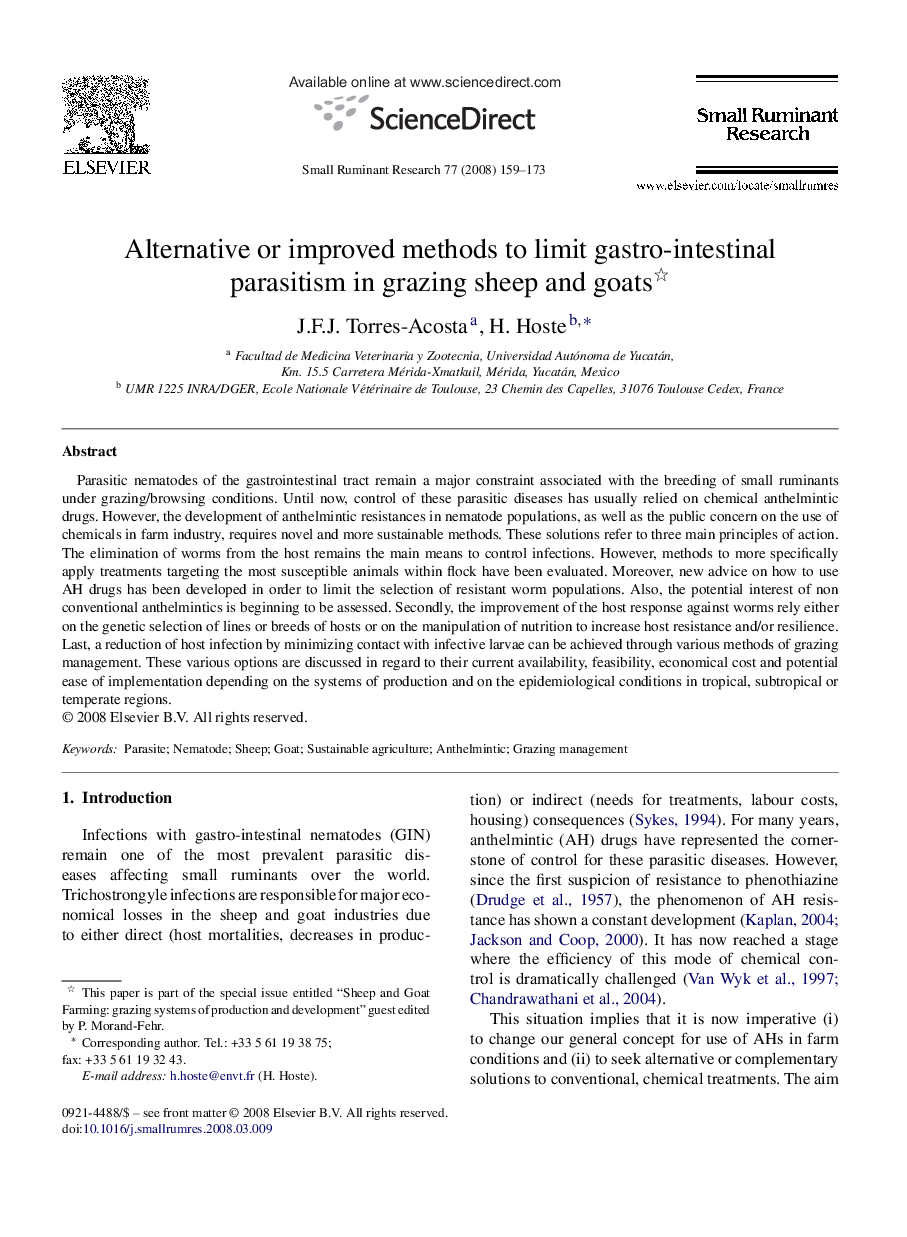| Article ID | Journal | Published Year | Pages | File Type |
|---|---|---|---|---|
| 2458241 | Small Ruminant Research | 2008 | 15 Pages |
Parasitic nematodes of the gastrointestinal tract remain a major constraint associated with the breeding of small ruminants under grazing/browsing conditions. Until now, control of these parasitic diseases has usually relied on chemical anthelmintic drugs. However, the development of anthelmintic resistances in nematode populations, as well as the public concern on the use of chemicals in farm industry, requires novel and more sustainable methods. These solutions refer to three main principles of action. The elimination of worms from the host remains the main means to control infections. However, methods to more specifically apply treatments targeting the most susceptible animals within flock have been evaluated. Moreover, new advice on how to use AH drugs has been developed in order to limit the selection of resistant worm populations. Also, the potential interest of non conventional anthelmintics is beginning to be assessed. Secondly, the improvement of the host response against worms rely either on the genetic selection of lines or breeds of hosts or on the manipulation of nutrition to increase host resistance and/or resilience. Last, a reduction of host infection by minimizing contact with infective larvae can be achieved through various methods of grazing management. These various options are discussed in regard to their current availability, feasibility, economical cost and potential ease of implementation depending on the systems of production and on the epidemiological conditions in tropical, subtropical or temperate regions.
